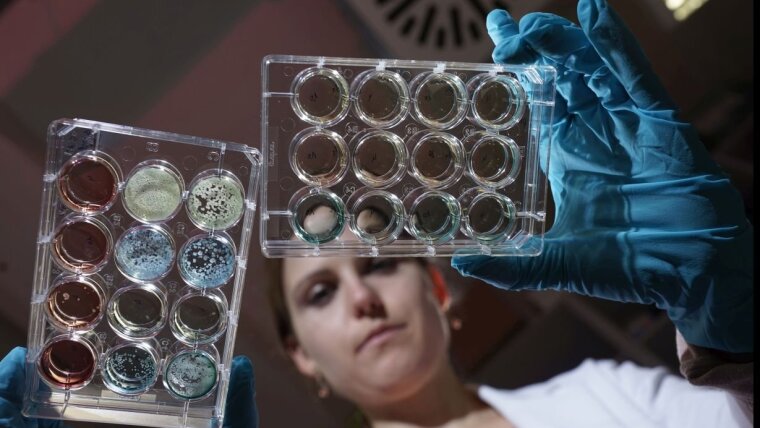
The Master study program "Microbiology" builds consecutively on a biological education and is focussed on research. A good scientific basic education in a Bachelor study program (normally in biology), enables enroled students in the Master program to independent scientific work in a modern interdisciplinary scientific field. The study program is especially dedicated to the integration and consolidation of knowledge in microbiology.
In this short movie, students and teachers give you an insight on the study program.
placeholder image — Stylized representation of a film projector
Graphic: FreepikOrganismic consortia with microorganisms are determining life on Earth. Homo- and heterogenic organismic consortia are the basis of interactions with plants in the rhizo- and phyllosphere, for the interaction with animals or man, or for the generation of multitrophic consortia in the complex soil matrix. Therefore, a detailed understanding of the microbiological fundamentals is essential. Additionally, microorganisms are of outstanding importance for applications in the field of biotechnology (high cell density fermentation, "quorum sensing" for the production of agents), environmental protection (elimination of pollutants), agriculture (increase of yield and tolerance towards stress), medicine (antinfectives) as well as in general biology (as model systems).
Besides the subject specific scientific abilities, graduates gain communicative skills of displaying science in the public and they can gain the international qualification that is required nowadays, by the possibility of a semester abroad. The Master program offers a consecutive scientific graduate study, especially in the fields of biology, microbiology, bioinformatics, biochemistry, cell biology, medical microbiology or biogeosciences, being offered by the Friedrich-Schiller-University as well as by universities in Germany and abroad.
With that, the graduates of the study program are perfectly trained for science (graduation) and for industry (especially for biotechnology).
The job market for microbiologists is still excellent. At regional level, the connection to the job market has already been established by the close cooperation with biotechnology companies in the proposal of the "Jena School for Microbial Communication", where 12 Jena companies of the biotech-microscopy trade participate as cooperation partners. Supraregional, companies like BASF, Bayer or Novartis have been interested in graduates from Jena microbiology already for a long time. Even internationally, microbiology in Jena could mediate graduates successfully (e. g. Novo Nordisk, Denmark; Ciba Geigi, Switzerland; etc.).